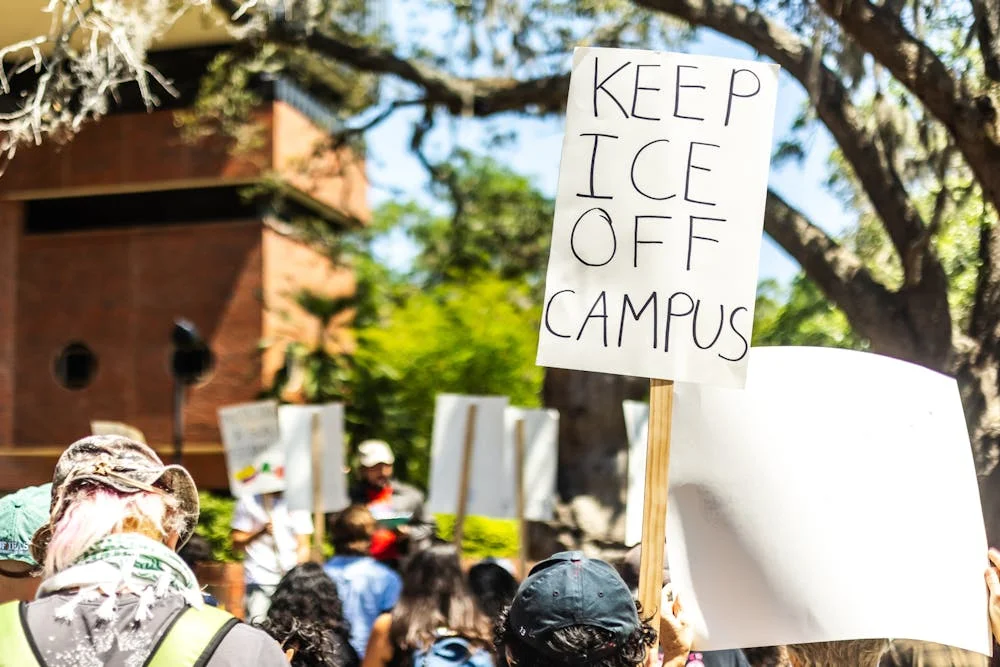
Florida Universities Embrace Federal Immigration Enforcement, Sparking Debate on Campus Safety and Inclusion
In a surprising policy shift that has drawn national attention, several major Florida public universities have moved to deputize their campus police departments for federal immigration enforcement—a development with profound implications for students, faculty, and the wider academic community. The initiative, driven by state directives under Governor Ron DeSantis, positions Florida at the leading edge of a complex debate over immigration, public safety, and the sanctity of campus life.
At least four institutions—including the University of Florida (UF), Florida Atlantic University (FAU), University of South Florida (USF), and University of Central Florida (UCF)—have sought or secured agreements with U.S. Immigration and Customs Enforcement (ICE) under the controversial 287(g) program. This agreement allows specially trained campus officers to interrogate, detain, and arrest individuals suspected of violating federal immigration laws, expanding police authority into areas traditionally regarded as off-limits for such intervention.
This sweeping measure upends a long-standing norm in higher education: that campuses are 'sensitive locations,' protected from aggressive immigration enforcement to foster an environment of trust, learning, and diversity. Critics warn that the new policies, which surfaced shortly after the Trump administration rescinded protections for campuses, risk eroding a sense of security for both domestic and international students.
"We are simply following guidance from the Governor’s Feb. 19 directive to state law enforcement agencies," explained Joshua Glanzer, spokesperson for FAU, reflecting a stance echoed by other universities. Governor DeSantis, a strong supporter of former President Donald Trump’s immigration agenda, has made such enforcement a pillar of his administration, signing laws that require local and state agencies—including university police—to collaborate fully with ICE.
Repercussions have already hit home. The University of Florida’s recent partnership with ICE came under public scrutiny when a student, Felipe Zapata Velasquez, was detained after being arrested for an expired license—prompting student protests and debates over civil liberties. Amid mounting campus concern, police handed out rules forbidding indoor protests and restricted the usual outlets for dissent, fueling fears of a chilling effect on student activism and campus life.
Leaders in academia and advocacy continue to sound the alarm. Jennica Charles, a political science student at FAU and daughter of Haitian immigrants, voiced her dismay: "Who's to say that someone doesn’t stop me and say, 'oh I look like I don’t belong here?' I definitely think it’s going to make people feel more unsafe, whether you are someone that has immigrant status or not." Miriam Feldblum, CEO of the Presidents’ Alliance on Higher Education and Immigration, warned that turning campuses into enforcement zones would damage their core purpose. “College campuses are supposed to be safe places for learning, for support, for growth,” she said.
Supporters of the policy argue it aligns state actions with federal law, aiming to "protect the homeland" and ensure the "integrity of U.S. immigration laws." The 287(g) program, widely used in sheriff's offices across Florida, is now taking root in the university setting—a precedent with potentially national consequences.
As implementation advances, university officials remain tight-lipped about how many officers will participate, the extent of planned enforcements, or the ultimate impact on student recruitment and campus climate. For now, Florida’s universities stand at a crossroads between law enforcement collaboration and the traditional promise of academic sanctuary.
The move raises pressing questions: Can campus communities balance security with inclusivity? Will other states follow suit? Share your thoughts and experiences below to keep the conversation going.